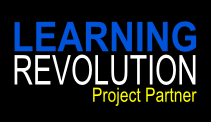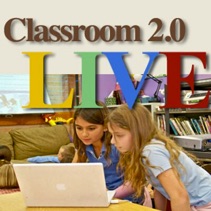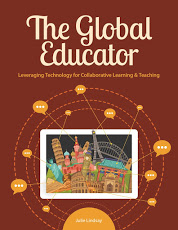Presenter: Konrad Glogowski
Location: Toronto, Ontario, Canada
Twitter: @teachandlearn
Presentation Title: Self-driven and Classroom-based: Professional Development in the 21st Century
Presentation Description: Based on Guy Claxton’s statement that “schools should become communities of practice where … the ‘elders’ of the community are themselves exemplary learners” (Claxton, 2002), this presentation explores the importance of Classroom-Based Teacher Development and Reflective Practice as essential professional development practices for the 21st century. It suggests that if students today are to benefit from schools where they can acquire the learning dispositions that will allow them to build and transform future societies and address global challenges, teacher professional development must be reconfigured to allow teachers to focus on examining and learning from their own professional contexts. The 21st century demands that teachers investigate their practices on a regular basis, learn to design new approaches, and quickly and effectively respond to the demands of the ever-changing knowledge society. Classrooms must therefore become sites of inquiry where teachers engage in practice that is perpetually experimental.
DotSub Video Presentation Link
Blip m4v direct link (video file)
Blip mp3 direct link (audio file)
Link to presentation’s supporting documents:
http://www.teachandlearn.ca/blog
Additional Information:
Blog: www.teachandlearn.ca/blog
Twitter: teachandlearn








Thank you, Konrad for a very insightful keynote. Reflective practitioners and learning-centered schools represent the illusive “Holy Grail,” the crucible of hope for the future. I wonder how different our world (bear witness, for example, to the story in, around and beyond Copenhagen that will unfold over the next two weeks) be if your keynote was less an aspiration and more a reality.
Pingback: Self Driven and Classroom-based Professional Development for the 21st Century. | Creating a Path for Learning in the 21st Century
Hi Dennis,
Thank you for your kind words. I’m glad that the presentation resonated with you.
Yes, I think reflective practice is challenging because it requires that we look carefully at who we are … as teachers and as human beings. Whenever we do that, inevitably certain things come out that may force us to re-examine our practice. Despite all the talk about 21st-century learning, we are still creatures of habit, and reflective practice demands that we zero in on those habits and ask ourselves: Why is this my practice? How does it support my students?
When I tried reflective practice in my classroom, the results at first made me question years of my classroom practice. In the long run, however, once I got over these initial insights, I was committed to learning with my students and to classroom-based professional development. Here’s one thing that the experience taught me: every teacher needs to know his/her pedagogical weaknesses … and we tend to pretend they don’t exist, don’t we? 🙂
– Konrad
Here are some questions to help guide our discussions:
Discussion Questions
1. What are some of the most difficult challenges that may prevent teachers from seeing themselves as inquirers and engaging as researchers of their own classroom practice?
2. Can you think of any examples, from your own practice, of learning with and learning from? How did they contribute to your professional development? Do you prefer one over the other?
3. What, in your opinion, are the three most important characteristics we must possess or acquire if we want to become reflective practitioners?
4. Classroom-based teacher development can take three forms: a) Teachers learning on their own, b) teachers learning with their colleagues, and c) teachers learning with their students. Should teachers focus on one of these approaches or try to embrace all three?
Reflection Questions
1. What artefacts (objects you created or objects you use in your classroom practice) best represent you as a teacher?
2. Have you ever felt burned out as a teacher? If so, how did you overcome this feeling?
3. What does the word “teacher” mean to you?
4. What do you think your students would identify as your biggest strength as a teacher and your biggest shortcoming? Explain.
5. When was the last time you stopped for a moment and questioned any aspect of your classroom practice (methods, materials, assessment, for example)? Please share the situation and its outcome.
– Konrad
Hi Konrad,
Thank you for sharing such an insightful talk. It is inspiring and a good reminder – to me, at least – why I’m happy to no longer be teaching more-than-full-time, as I was for several years.
As I listened to what you were saying, I said “YES!!” in my head many times. SO important to be aware of our own practise, our own weakneses.
My mind turns to thinking… what kind of system would actually allow teachers to be learners? The best teacher-learners I know end up doing masters’ or doctorate level study – yourself included!
Classroom-based professional development is possible when the day-to-day teaching load allows such a luxury – no? How are African teachers you work with reacting to these ideas?
This talk has inspired me to go out & create space for learning/entworking in my after-school homework/mentorship support program. “Conversations that grow out of the classroom”… here we come.
Thanks for inspiring, as usual 🙂
Mali
One little follow-up comment in response to one of your questions: I really like the idea of “learning-with”. When I have limited time/energy, “learning-from” is the default… and when I am burnt-out, there is little learning at all.
I am intrigued to learn more about how you choose content / create projects with your students. Any resources you could pass along would be appreciated!
Hi Mali,
Thank you for your observations. Over the years I have become very sensitive to how teaching loads and other school- and classroom-based responsibilities and commitments can impact our ability to reflect and invest in ourselves as learners.
That’s why I think that classroom-based teacher development is such a valuable approach, because once we make that shift to practice as perpetual experimentation, we look at everything we do as an opportunity for reflection. Reflection is therefore built-in and not some add-on that we struggle to tack onto our already busy days.
In other words, teachers who embrace this approach use classroom time, for example, to ask critical questions. Imagine taking 10 minutes at the end of a unit to ask your students:
Did you find this unit engaging?
What did we do well (that “we” is crucial)
What can we improve when we start our next unit?
What kinds of activities would help you learn?
This can be done in class or, if you have an online community, it can also be a discussion topic that students address at home. And teachers should be part of this process, too. Consider the following:
“I really enjoyed your group presentations because you had the freedom to explore this topic with each other and created presentations that helped me look at this from a new point of view.”
A lot of dethroning, don’t you think?
So, I think the short answer is that this is a process. If we want to implement it overnight, it will never be more than an artificial add-on that we eventually abandon. It has be who we are. I always say that teachers have to grow into reflective practice. It takes time. It takes time to learn to admit that we don’t have all the answers and to learn to see ourselves as learners.
The best way to start is to pick a few critical questions and see where they lead you. Some of my favourites:
1. Why did I present the material this way?
2. If I were a student in my class, would I enjoy it? Would I learn?
3. Have I used this approach before? Should I use it again? Why?
4. What do I like least about myself as a teacher? Why?
– Konrad
– Konrad
Pingback: Change… « What Ed Said
Thank you for this very helpful information. I am about to begin a career teaching religion in Catholic high school and this is exactly what I see as needed by many religion teachers. So many of the older teachers do not have a reflective practice nor do they learn with the students. They teach from the book and disregard all else. It is very sad. Your ideas are exactly what i needed to hear – what i had begun to form on my own but had not put together as you have done. Thank You!
Very nice; thank you.
What you present here is very resonate with the long tradition of teacher reflection, including teacher inquiry/action research traditions which, in many cases, include students in inquiry. This important tradition has not always been linked with the notion of a personal learning network, for example, or other depictions of professional learning that are much associated with interests in technology.
There is no reason this separation needs to exist, and I appreciate that you have pulled these interests together to remind us that we are all, teacher and student alike, in a process of becoming.
Pingback: Reflecting on the K12 Online Conference | Kevin's Meandering Mind
Pingback: Self-driven and Classroom-based: Professional Development in the 21st Century | ReadingPower
Pingback: First steps | Learning, sharing, climbing...and sometimes falling
Pingback: Can we tear down our walls and let in the world? « Smart's Blog
Pingback: Exploring Online PD « Volklore – EC&I 832 – Internet & the Curriculum
Pingback: Thing 13 – K-12 Online Conference | 23 Things
Pingback: Thing 13 “Conference from the comfort of home” | Seasoned Hiker
Pingback: The Role of Inquiry « Connections
Pingback: The Role of Inquiry | The Big Rocks and Thoughts